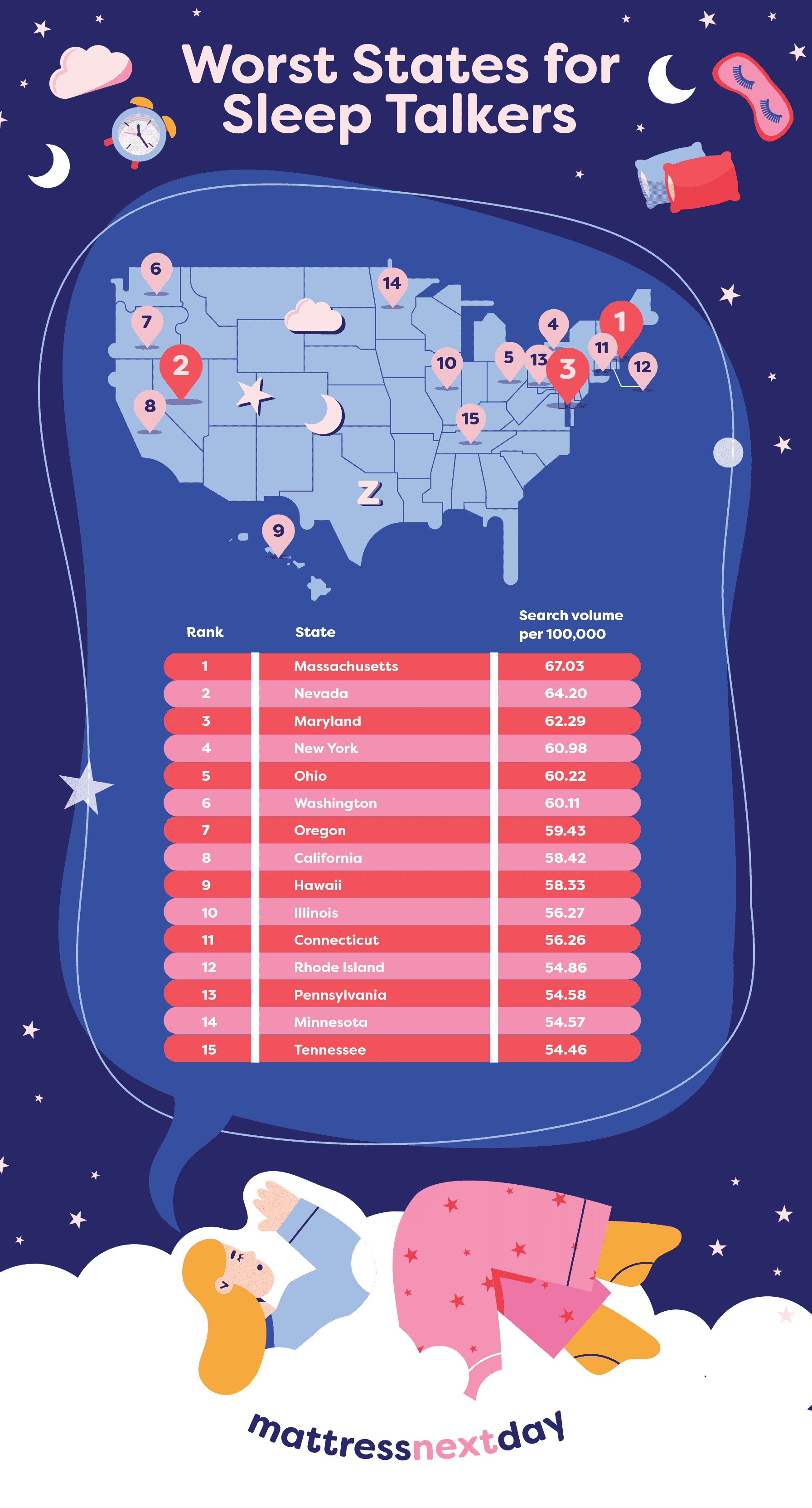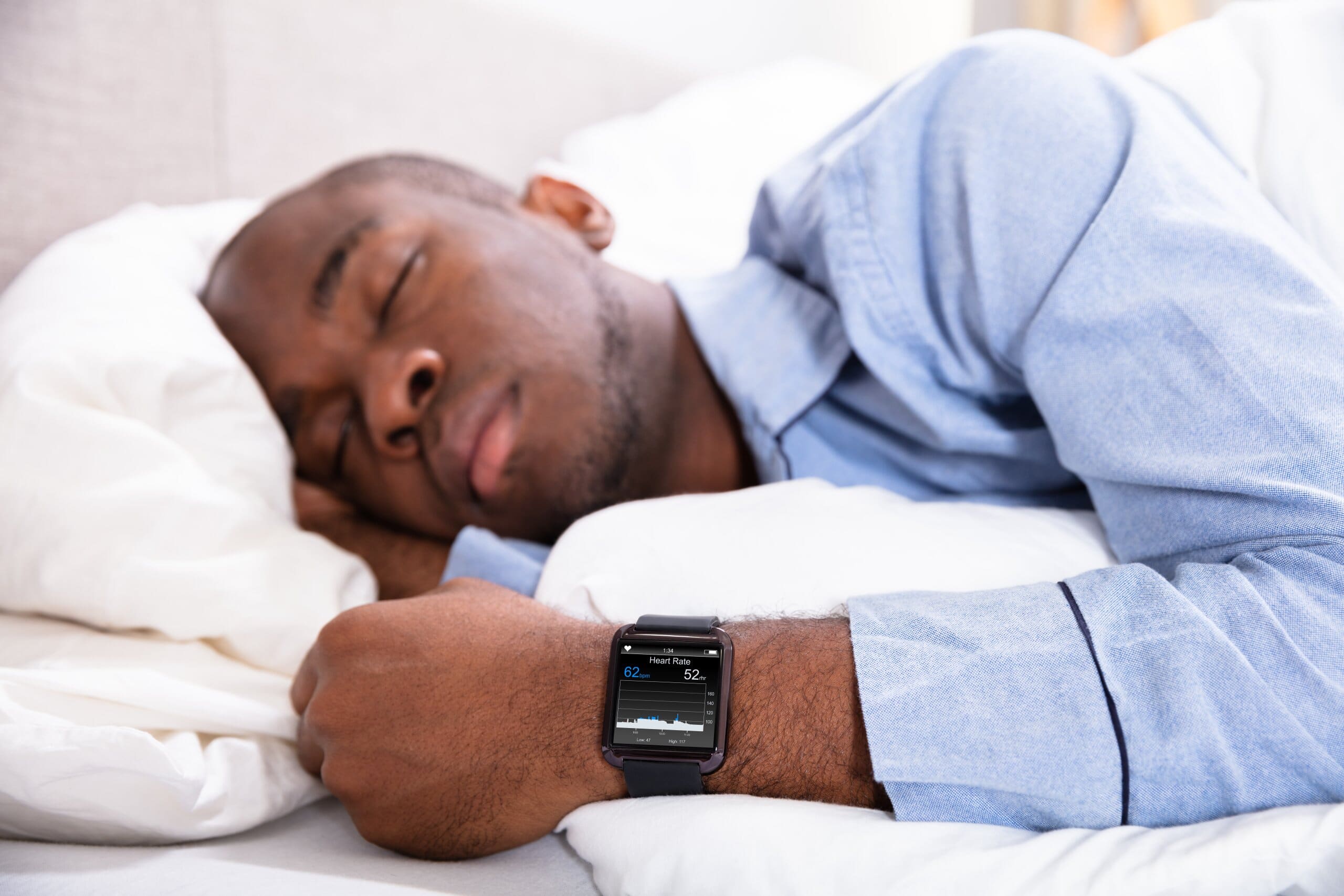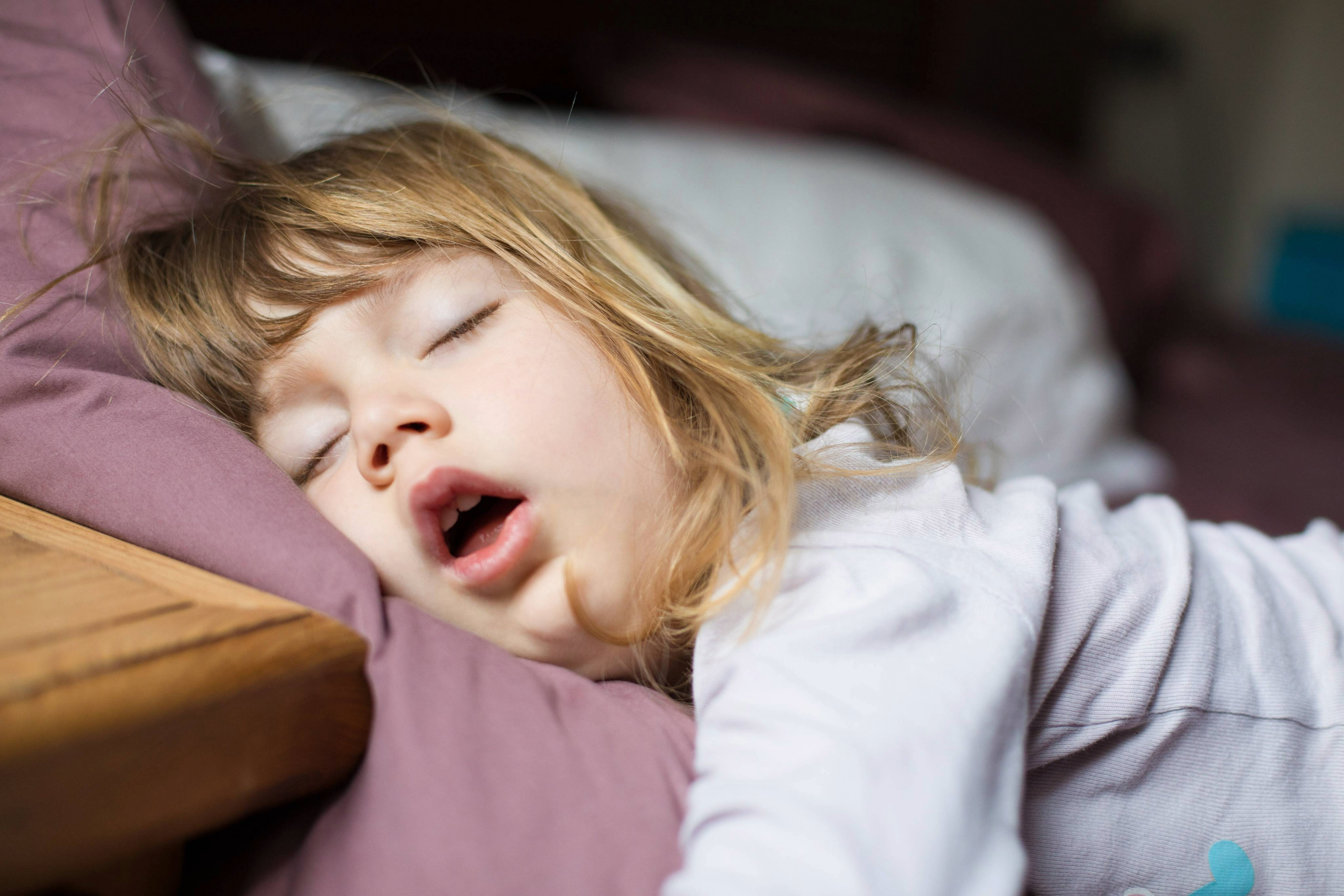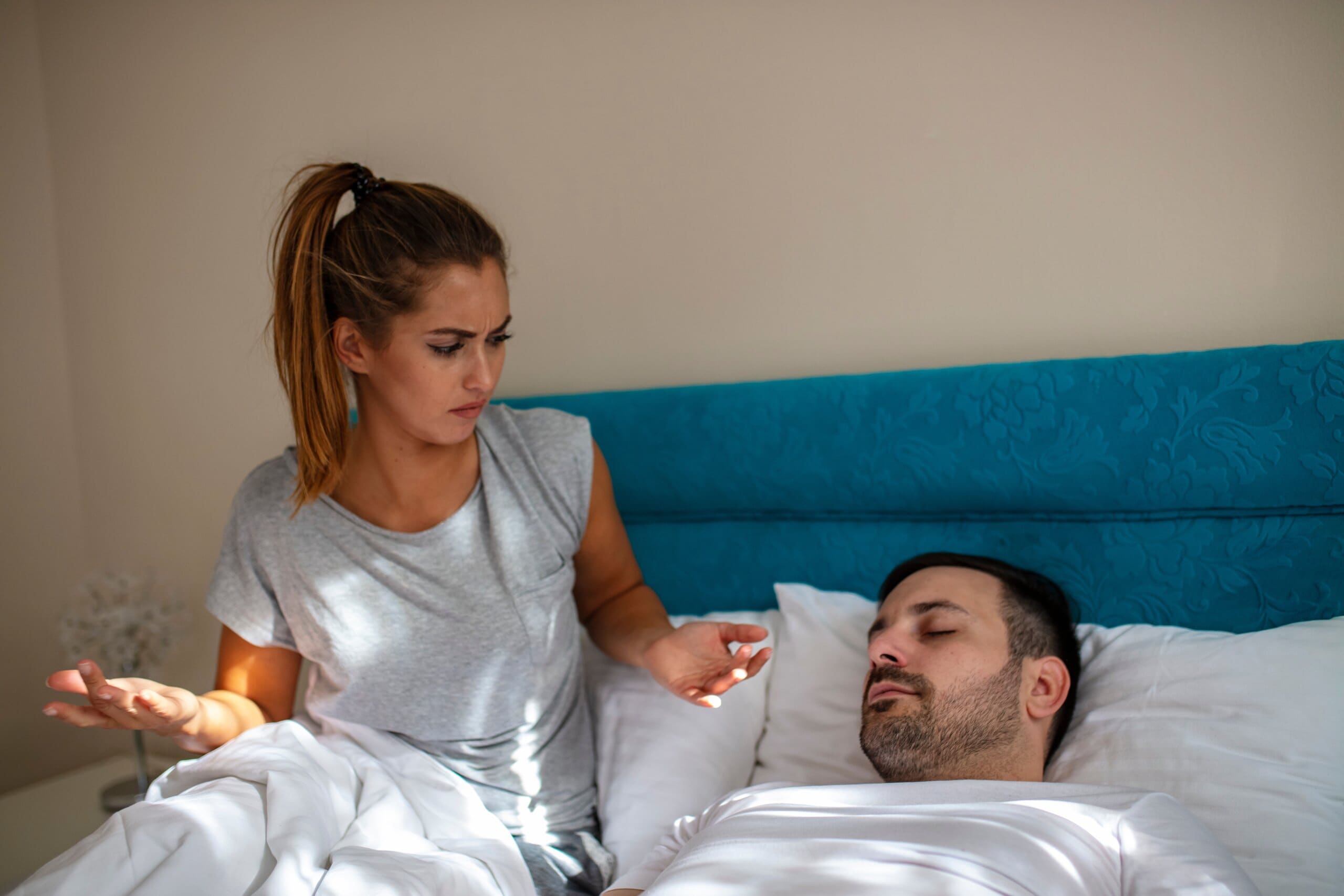There are few things more annoying than settling down for a good night’s sleep after a long day, only to be rudely awoken by your partner talking in their sleep.
However, despite it being annoying, it’s actually pretty common, with 66% of Americans experiencing episodes of sleep talking. And, with the term “sleep talking” searched for 1,267,840 times over the last 12 months across the USA according to keywordtool.io, it’s clear to see it’s still a common issue for many.

Massachusetts suffers from sleep talking the most
With a population of almost 7 million, Massachusetts tops the board as having the most sleep talkers, with a search volume score of 67.03 per 100,000 over the course of a year.
Nevada, Maryland, New York, Ohio, and Washington all fall not far behind, with search volumes per 100,000 of the population above 60.
Oregon, California, Hawaii, and Illinois make up the top 10, showing that sleep talking isn’t concentrated on one specific coast or region, but across the whole of the USA.
If we looked at it based on search volumes alone, then California sees more people Googling “sleep talking” than anywhere else, with yearly searches standing at a huge 22,800; with Texas coming in second place, at 15,600, and New York and Florida in joint third, at 12,000.
However, with their populations some of the largest, it means that when you look at it comparatively, they aren’t quite as high, with California’s 58.42 searches per 100,000 people putting them in eighth place.
In contrast, Wyoming, Vermont, Alaska, North Dakota, and South Dakota all saw the least number of searches for sleep talking, at 240 over the course of the year. However, based on their population, whilst South and North Dakota came in as having the least sleep talkers, at a search volume score of 26.38 and 30.8 respectively per 100,000 people; it’s Idaho, Montana, and Alaska that make up the bottom five.
Methodology
This dataset ranks all US states, based on how often they Google “sleep talking”. To do this, we gathered search volume data for every state, and the factors were then normalised, to provide each factor in a per 100,000 population basis. The locations were then ranked from highest to lowest, based on their normalised search volumes.
The factors used are as follows:
- Search Volume - The number of searches for the prompt 'Sleep Talking' between Feb 23 - Jan 24.
All data is correct as of 26/02/24. The ranking data shown is a compilation of multiple data sources and may not be representative of real life. All data is accurate with regard to the sources provided.

How To Stop Sleep Talking
Talking in your sleep can be either funny or frightening for anyone listening in – and you often won’t remember you’ve even said something! But what causes us to start speaking nonsense while we’re supposed to be unconscious? Well, we decided to dig into the specific type of parasomnia to figure out what causes this abnormal behaviour, and to give you some advice on how you can potentially prevent yourself from sleep-talking in the future.
What is sleep-talking?
Sleep-talking is the act of talking or making sounds while you’re asleep, and rest assured, it’s not considered to be a medical problem. As we mentioned above, sleep-talking is a type of parasomnia, which is a behaviour that’s normal (but potentially scary) while you are asleep – this includes things like sleep paralysis and sleepwalking.
Generally, sleep talkers will only speak for up to 30 seconds in an episode, but some people will have multiple episodes in a night. It can happen to anybody, but some people might find it happening more often than others.
What are the symptoms of sleep-talking?
As you might expect, the symptoms include talking aloud or making noises that other people can hear. Sometimes the talk can be nonsense, and other times it can seem as if you’re holding a conversation with someone awake. Sometimes it can be very eloquent and other times it can be unintelligible mumbling. They can also shout very loudly, or whisper very quietly – there’s a huge variety to the sounds that sleep talkers can make!
How common is sleep-talking in children?
Half of all kids between the ages of 3 and 10 years old have conversations while asleep, with 1 in 10 children sleep-talking more than twice a week. Girls and boys are both just as likely as each other to talk in their sleep.
How common is sleep-talking in adults?
It’s only a small number of adults who sleep talk - about 5% of the population. However, sleep experts do think that sleep-talking can run in families, so if you find that you don’t grow out of your sleep-talking as you grow older, it’s worth checking to see if your parents or siblings are also dealing with nighttime ramblings too.
What causes sleep-talking in adults?
Sleep-talking generally occurs on its own and can happen during both REM and non-REM sleep. It’s not caused by dreaming, despite some of the fantastical things that people may talk about when they’re asleep which leads us to think we’re getting a description of their dreams. For the most part, it’s harmless, however, sometimes it can be a sign of a more serious health condition or sleep disorder that needs to be addressed.
REM sleep behaviour disorder and sleep terrors are two such sleep disorders that are more likely to cause people to talk in their sleep, normally shouting or crying out. Night terrors often involve a lot of movement and unrest, such as thrashing, kicking and screaming, and it’s often difficult to wake someone from a sleep terror.
Other triggers for sleep-talking and sleep disorders include:
- Specific medications
- Substance abuse
- Mental health disorder
- Emotional stress
- Fever
What causes sleep-talking in children?
Children are more likely to sleep talk than adults anyway, but it has been found that children who experience sleep terrors are much more likely to sleep talk or sleepwalk than those who don’t. If your child has a fever, they are more likely to experience night terrors and will show signs such as thrashing, shouting, or mumbling, which can be frightening for both you and your child.

How to stop talking in your sleep
If your sleep-talking is causing you, your spouse, or your roommate serious sleep problems, then your first step should be seeking out a sleep specialist. If your sleep-talking involves violent outbursts or screaming, you should also seek medical advice from a sleep consultant to find a solution.
There are no tests that can be run to give you a formal diagnosis of sleep-talking, but you might have to undergo a sleep study or polysomnogram to look for signs of other sleep disorders. There is no known way of stopping sleep-talking, however, there are some things you can do to encourage good sleep hygiene that may reduce the instances of sleep-talking.
1. Record your sleeping patterns
Your sleep talking might be down to specific triggers or factors, so one potential way to find out the cause is by downloading a sleep tracking app.
If you find that you’re talking at specific times during the night, you might be able to understand the causes behind it, and take actions to eliminate those factors.
2. Use earplugs or a white noise machine
Earplugs can help drown out one-off episodes, but if it’s more frequent, then consider investing in a white noise machine or fan to help drown out the talking. By giving you a noise that’s more soothing to focus on, you could get a proper night’s sleep, no matter how much the person next to you is talking!
White noise helps with insomnia, but if you find it doesn’t work for you, then have a read of our guide to find what colour noise is best for you.
3. Stick to a routine
One of the best ways to reduce your chances of sleep talking is to feel relaxed and ready for bed. Create a bedtime routine that you can stick to – even on weekends – which includes relaxation methods, such as meditation, a ban on screen time in the bedroom, and a limitation of caffeine.
4. Switch out your bedding
Soft bedding, pillows, and mattresses can help to reduce not just noise, but movement disturbances as well, which can be caused by the sleep talker. While it won’t stop the act of sleep talking, softer bedding can help you, as a partner, get a night of uninterrupted sleep.
5. Check your medication
In some cases, sleep talking can be caused by prescription medication. If your partner or loved one has noticed you’ve only started talking in your sleep around the time you started taking a certain medication, then chat to your GP to see if it’s a potential side effect, and see whether or not they need to adjust the dosage.


Whether you’re a sleep talker - or the partner of a person who is one - hopefully these tips will help you to get a restful night’s sleep, every night. For more tips on getting some quality shut-eye, head on over to our blog where you can read guides such as how to stop snoring; or, browse our range of quality bedding, which includes memory foam mattresses, bed frames, and more.






